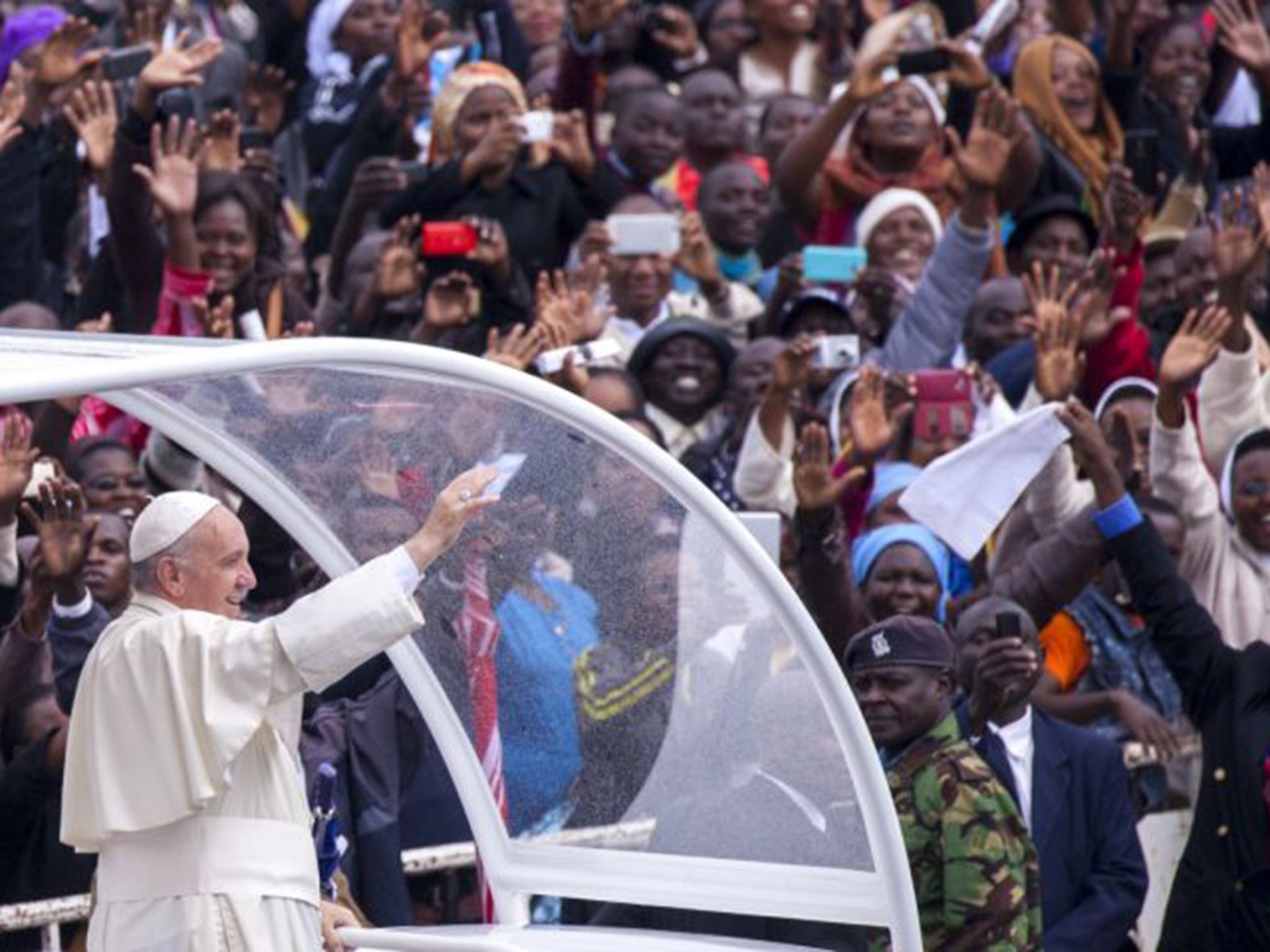Pope Francis in Africa: Pontiff urged to confront homophobia on visit to Uganda
The East African nation's LGBT community are frequently the target of violence

When a Ugandan newspaper last year published a list of 200 people it said were homosexuals, Akram Kalungi was horrified, if not surprised, to find himself among those named.
Like everyone in Kampala’s close-knit gay community, he was aware of the potential repercussions. Three years earlier, David Kato, a prominent gay activist, had been unmasked in similar circumstances. Weeks later, he was bludgeoned to death.
“After I was ‘outed’,” says Mr Kalungi, 26, “my mother chased me out. She kept shouting that she would take me to jail or kill me.” He had nowhere to go, so he joined those heading across the border to Kenya, considered a haven for homosexuals escaping persecution.
As Pope Francis prepares to visit Uganda on Friday, activists are urging the Pontiff to use his inaugural visit to Africa as Catholic leader to preach tolerance towards a community whose members are frequently the target of violent homophobia.
“We are praying the Pope will say something about the abuse of the LGBT communities in Uganda,” a female activist from Freedom and Roam Uganda, a lesbian advocacy group, said by phone from Kampala, adding that the “biggest discrimination” comes from religious leaders.
Pope Francis, whose visit began in Kenya, has said previously that homosexual acts are sinful while same-sex orientation is not, saying of gay priests: “Who am I to judge?”
His words at a Mass in Nairobi, however, were geared more toward traditional values, emphasising that the “health of any society depends on the health of its families.” Reflecting, perhaps, the more conservative nature of the church in Africa, he also spoke strongly against abortion, a hardening of his earlier stance.
Nevertheless, he urged Kenyans to “reject everything that leads to prejudice and discrimination”. But the Vatican has remained evasive on whether he will address the question of gay rights in Uganda, where the churches are widely accused of fuelling homophobia.
Many religious leaders – the Catholic archbishop of Kampala was a notable exception – backed a draconian anti-gay bill, an early draft of which called for the death penalty for homosexual acts. The law was enacted last year to furious criticism from the West only to be later overturned on constitutional grounds. Homosexuality is illegal in Uganda, punishable by life imprisonment.
“When the President of Uganda [Yoweri Museveni] enacted the law, [the Church] held thanksgiving prayers. The churches were really sending a bad message,” Frank Mugisha, a practising Catholic and head of Sexual Minorities Uganda, said by phone.
Unlike in Kenya, where gay people enjoy a degree of tolerance even though homosexual acts are also outlawed, Uganda’s gay community has largely been pushed underground. “It’s a life of fear,” said Mr Kalungi. He moved in with his mother after coming home one night to find thugs attempting to set fire to the house he shared with friends.
Few dare to go to the police for fear of further harassment. Even after the anti-gay bill was nullified, police continued to use it as a pretext to beat up homosexuals, said the lesbian activist. “Laws or no laws, we face the same violence, the same discrimination.”
Sometimes, the greatest danger is at home. When the parents of Arafat Kawooya, a 33-year-old Muslim, found him in bed with a boyfriend, his father went for him with a knife. He narrowly avoided his father’s anger by jumping out of a window. His boyfriend was not so lucky – he was caught and arrested.
For a time, he shuttled between houses – first to an aunt, who threw him out when his parents informed her of what had happened; then to a neighbour. When he, too, learned what had happened, he asked him to leave. His only option, he said, was to head for Kenya.
As a refugee, he found life was about to get worse. He turned to gay prostitution, picking up men in clubs. Sometimes it turned out badly, such as the night he was drugged, tied up and raped by three men. As bad as it gets in Kenya, though, he is no hurry to return to Uganda. “I can’t go back,” he said, speaking in Nairobi. “I have no family now. I had to leave, to save my life.”
Join our commenting forum
Join thought-provoking conversations, follow other Independent readers and see their replies
Comments
Bookmark popover
Removed from bookmarks